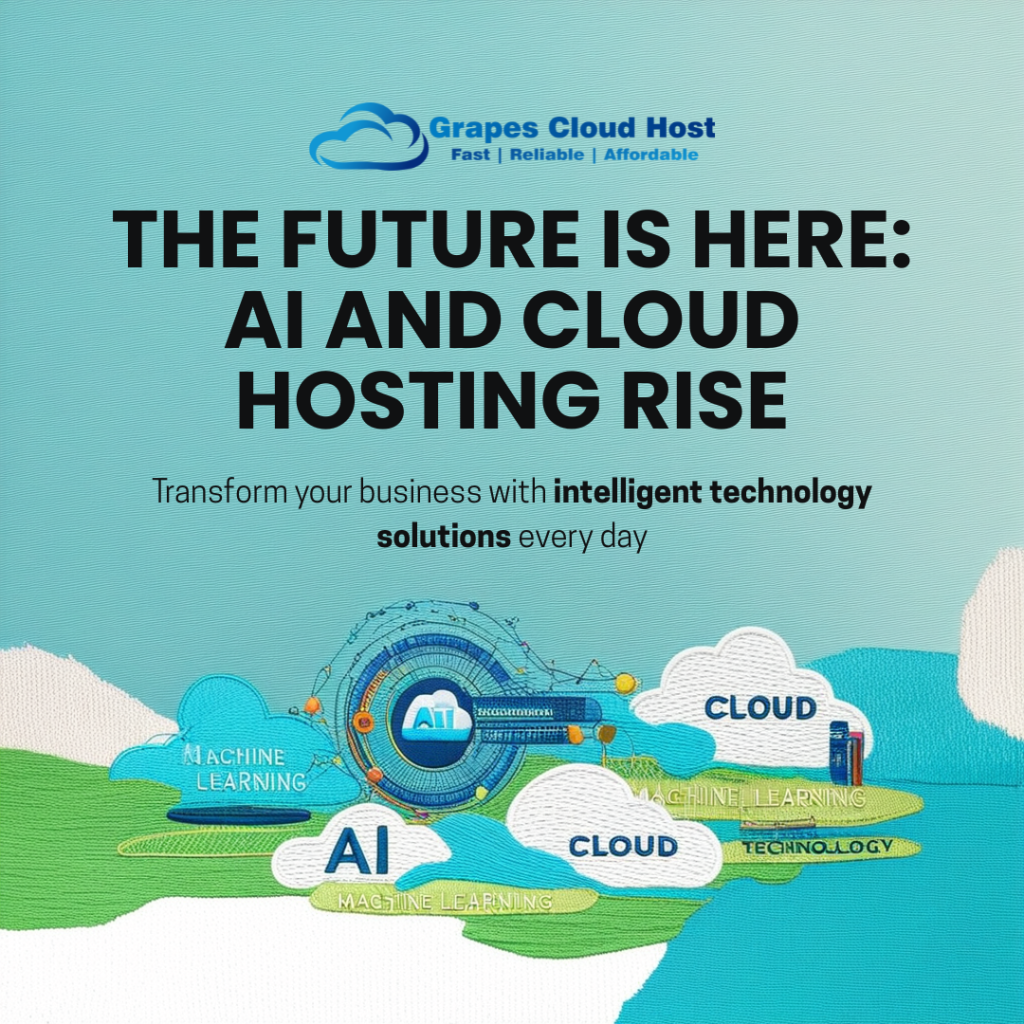The cloud hosting industry is undergoing a massive transformation — and at the heart of it lies Artificial Intelligence (AI) and Machine Learning (ML). What was once a static infrastructure landscape has now evolved into an intelligent, self-optimizing environment where performance, security, and scalability are enhanced like never before.
In this blog post, we’ll explore how AI and ML are reshaping cloud hosting, the benefits they bring, and what it means for the future of businesses relying on the cloud
1. Smarter Resource Management
One of the key applications of AI in cloud hosting is automated resource allocation. AI algorithms can monitor traffic patterns, usage spikes, and application performance in real time — automatically scaling server resources up or down as needed. This results in:
Reduced downtime
Improved load balancing
Better cost efficiency for clients
With machine learning, the system learns from past usage trends and makes even more accurate predictions, ensuring optimal performance without human intervention.
2. Enhanced Security Through Intelligent Threat Detection
Cyber threats are becoming more sophisticated, but so is the defense.
AI-driven cloud platforms now use real-time behavior analysis and anomaly detection to identify potential threats before they cause harm. Machine learning models can detect malware, brute-force attempts, or unusual activity patterns that traditional firewalls may miss.
Solutions like Imunify360 and other AI-based security tools are already using this technology to strengthen cloud server defenses.
3. Predictive Maintenance & Performance Optimization
Gone are the days of reactive server management. AI allows for predictive analytics, helping hosting providers anticipate hardware failures, storage issues, or bottlenecks before they impact customers.
ML models continuously analyze logs, server health metrics, and network traffic to flag early warning signs — allowing teams to act before problems escalate.
4. Personalized User Experiences
AI is also improving the user experience in cloud hosting dashboards. From intelligent support chatbots to personalized plan recommendations, hosting platforms are becoming more user-friendly, especially for beginners.
Think:
Automatic performance tuning suggestions
Security alerts tailored to your usage pattern
Smart onboarding for new clients
These features not only enhance usability but also reduce support costs for providers.
5. AI in DevOps & Automation
DevOps teams benefit greatly from AI integration in cloud hosting:
CI/CD pipelines can be optimized using ML insights
Auto-healing systems reboot or reroute traffic instantly after a crash
AIOps (AI for IT Operations) platforms proactively manage large-scale infrastructures
This allows teams to ship updates faster and maintain more reliable cloud environments.
The Future: Self-Managing Cloud Hosting?
As AI continues to evolve, the vision of fully autonomous cloud environments is closer than ever. Imagine cloud servers that not only self-heal and scale, but also self-optimize based on traffic, demand, and cost-efficiency goals — all without human oversight.
Hosting companies that adopt AI and ML technologies early will gain a competitive edge in terms of uptime, customer satisfaction, and operational efficiency.
AI and machine learning are no longer buzzwords — they’re becoming essential tools in the cloud hosting world. As these technologies mature, they will redefine how we build, manage, and secure online infrastructure.
Embracing AI in cloud hosting isn’t optional — it’s the future.


